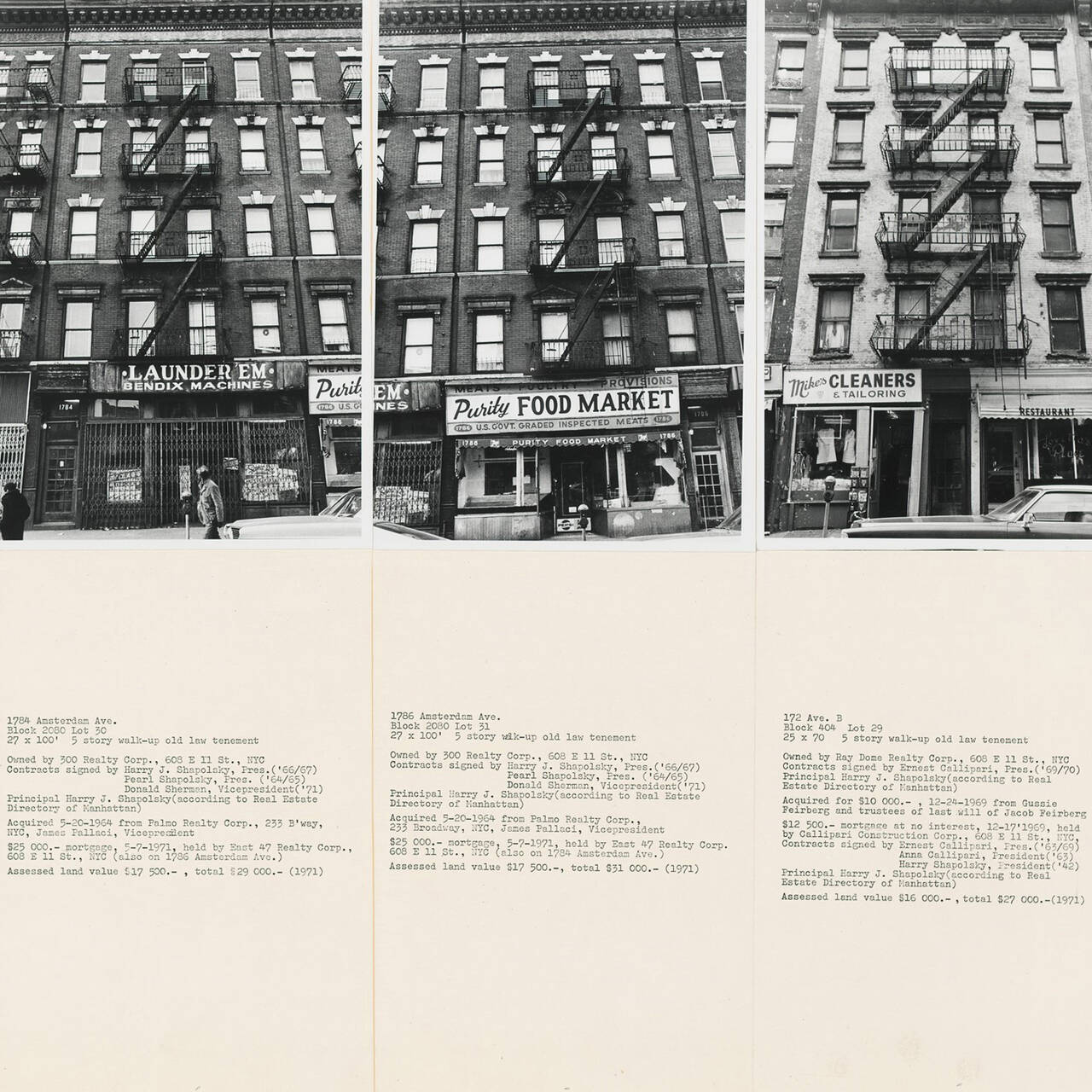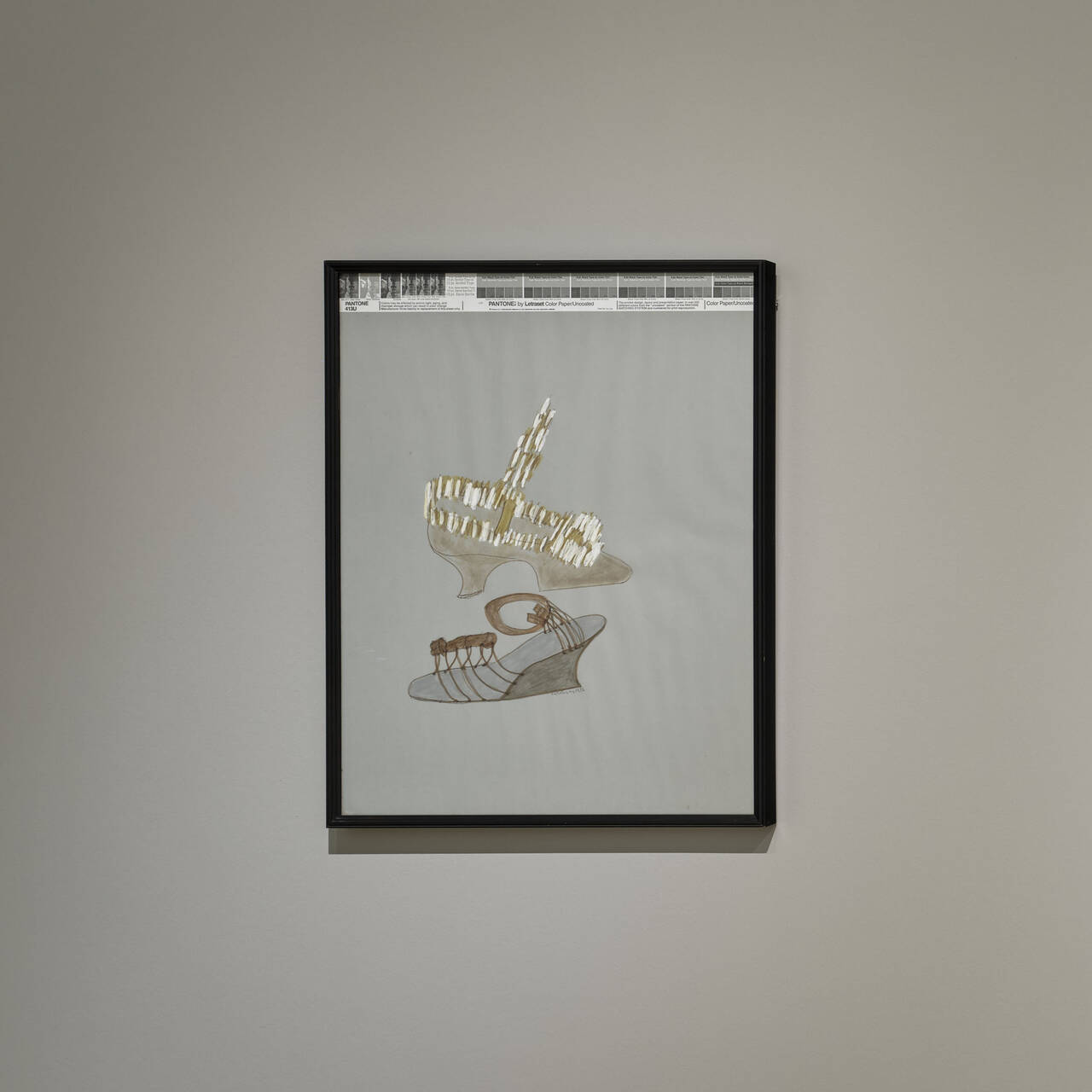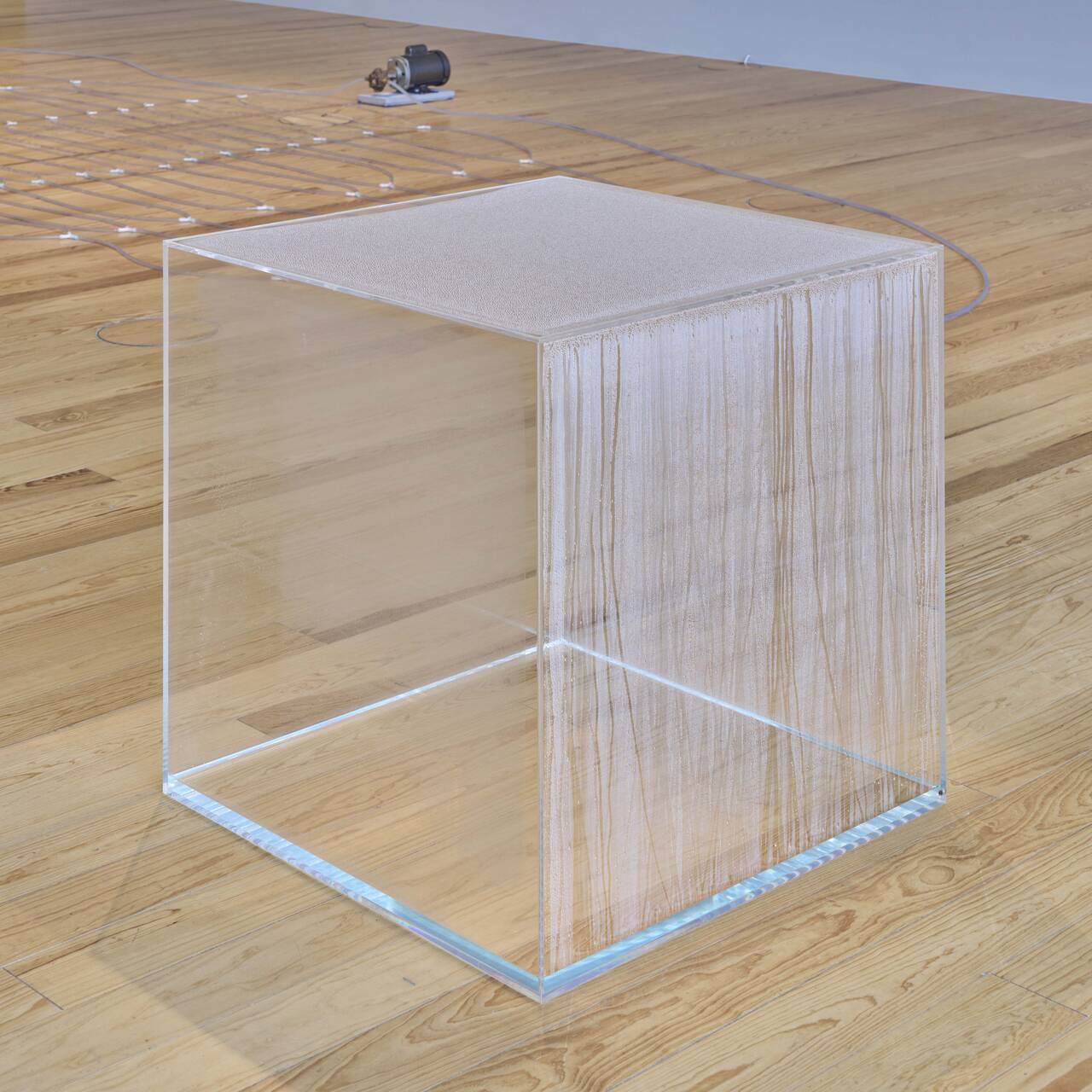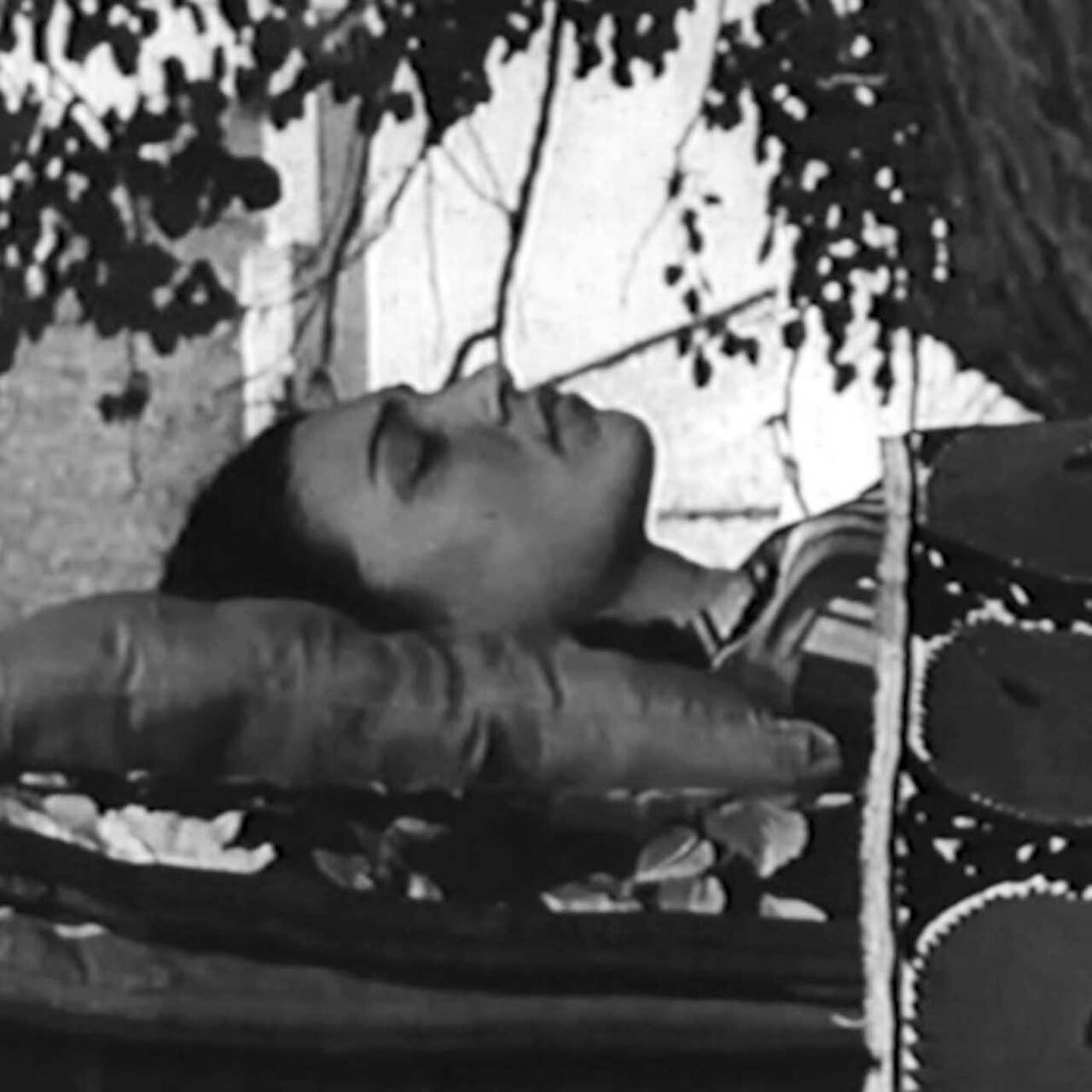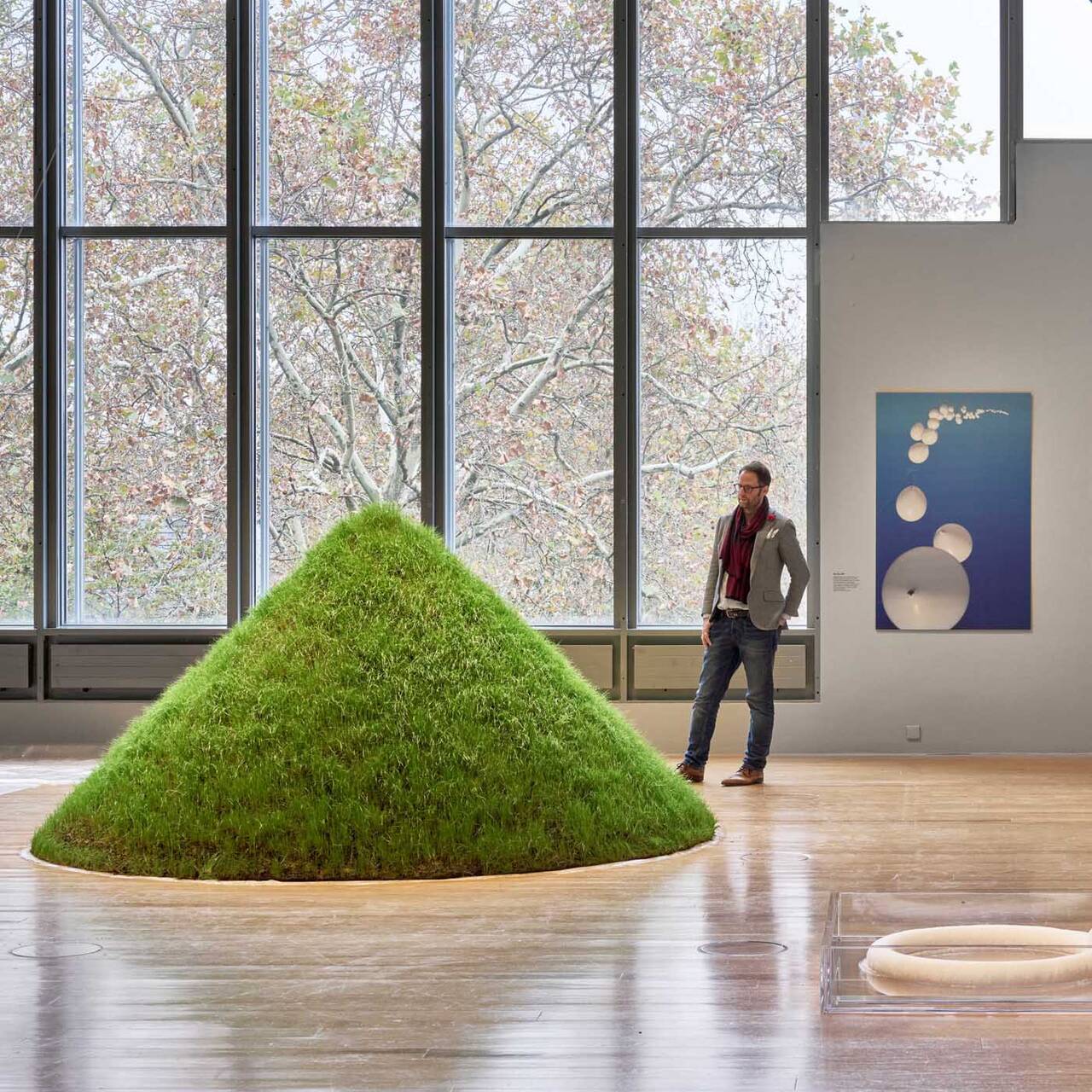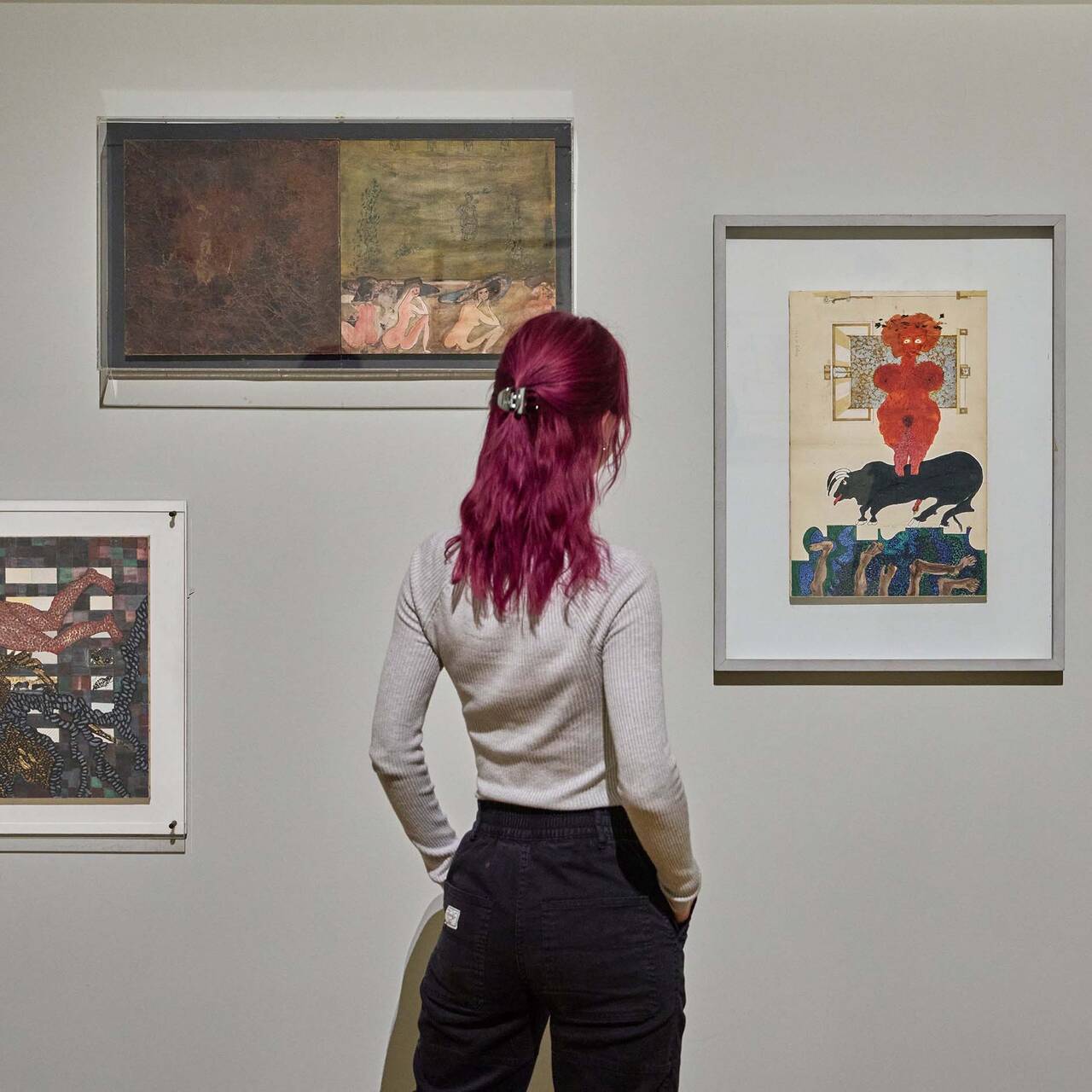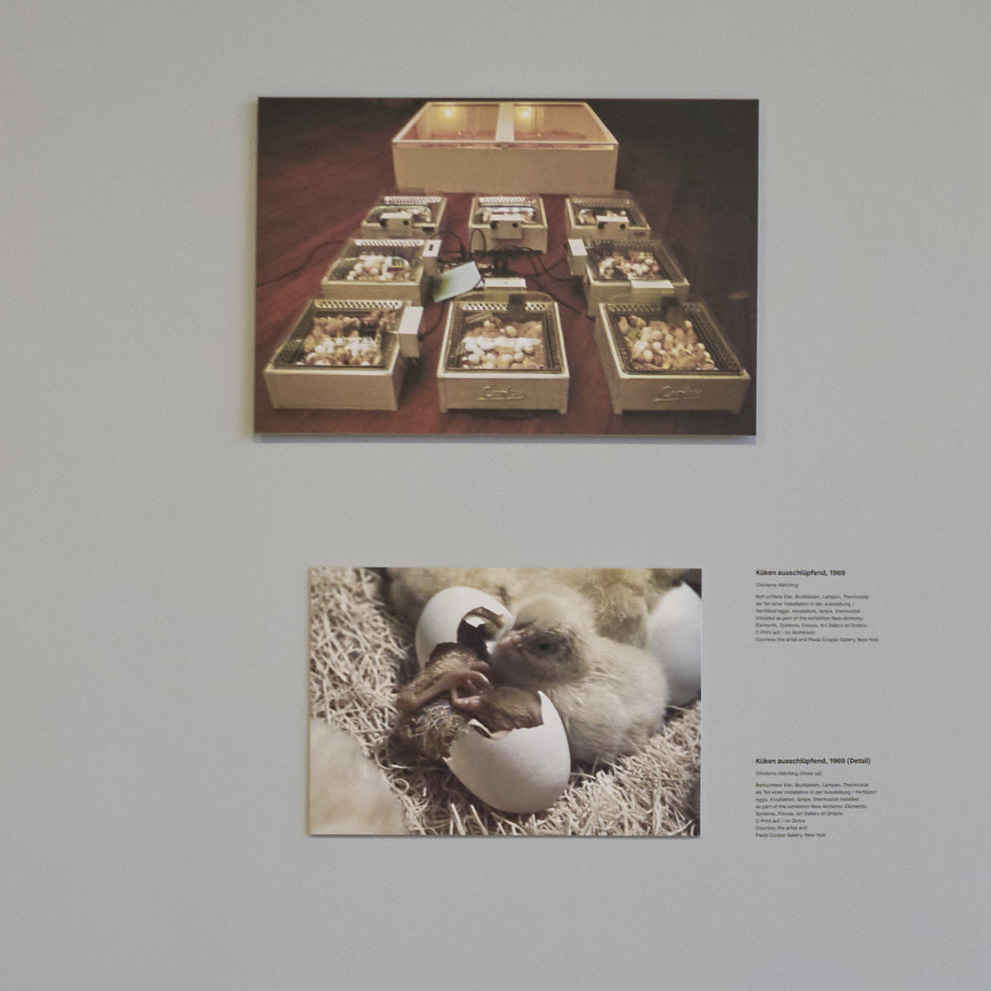For weeks they have been crawling over the Schirn website, causing a lot of irritation: Artist Jonas Lund finally unravels the mystery of the flies. A conversation about unequal power relations, information asymmetry and political art online.
In preparation for this interview, I looked at several of your works online and got completely lost in them. Then I discovered that you first studied photography and only later switched to (inter)net art. How come?
I studied photography at the Rietveld Academy in Amsterdam, which specifically focuses on photography as a medium. There, I was mostly making “photography about photography”. However, towards the end of my studies, I started to program websites for friends and thereby discovered a whole new way of production. At that time, the medium of photography felt quite exhausted. There was this one device to output one type of image, and the act of pointing this device towards something, pressing the button and the outcome being the work felt very limiting. On the other side, you have the whole world of online art, online production methods, the community, which felt very empowering. You can start your day with the simple idea of making something and then, at the end of the day, everyone can see it. That seemed much more engaging to me, opening new possibilities.
Would you also describe it as more democratic?
I don’t know if I would say democratic, but power, influence and agency are distributed in a different way. Around 2009-10, there was kind of a first wave of social media. And it became increasingly obvious that these automatic systems determine a lot where we’re at in society today in terms of rules and structures. Being closer to that language and process of programming was like taking back some of that agency.
The whole world of online art, online production methods, the community [...] felt very empowering.

And programming, did you learn it on your own?
Yes, kind of. Much of what you learn is through a community. And you google a lot, I mean: a lot! Many programming solutions and applications are for free by being distributed as ‘open source software’, available for anybody, and a lot of people produce new types of software which they then share. It’s very collaborative and inclusive. You feel like you’ve become part of this huge community. And any time you have a problem or a question, you will find the answer online.
I see.
Arnold Schwarzenegger had this post on social media years ago: seven tips for how to live a fulfilled life. And the last one was to give something back to the community, or to the neighborhood, to make the world a better place. So by sharing the programs you’ve made, and by releasing it open source, you can also give something back to the community.
That leads me to another question. Your work is often described as ironic or even cynical. For instance, the Jonas Lund Tokens expose the structures of the art market, making the processes of buying and selling art transparent. You demystify the whole system and question the genius of art, the authenticity and originality of an artwork. How would you evaluate your own artistic activity within that context?
It’s funny, because I don’t consider myself a cynic, rather a skeptic. If you’re not authentic as an artist, if you don’t believe in art, then you’re a cynic by default. However, you can question the art world and the value of art production and still believe in art. But many people get confused about this, because as soon as an artist additionally acts as a critic and describes the art world as what it actually is – a market, a massive network of sentiment and manipulation through hierarchical power structures – then you are described as cynic and people think you don’t believe in the value of the art. But I do. I believe in the power and value of the artwork.
However, it’s the institutions in the art world that determine what’s “good”, “relevant art” and what’s “bad”, “irrelevant art”. And the more power and influence you have, the more you can influence the value of an artwork. I don’t think that’s cynic. That’s entirely realistic. It doesn’t take away any value from the individual artworks, it’s just a question how this value is produced within the global art world network.
I don’t consider myself a cynic, rather a skeptic.

Jonas Lund Token Proposal #23, 2019, Image via jonaslund.com
Do you pursue a political agenda as well?
I would say all art production is political in nature – even if you choose to make figurative paintings that have nothing obvious to do with politics. You make a choice regarding your production, whether you embrace this political aspect or not. A lot of my work is about making certain structures, behaviors, biases and processes visible. It’s asking viewers to look at certain things and pay attention. For example my work “Operation Earnest Voice”, a performance I made last year that was trying to reverse and cancel Brexit. It comes from a systemic point of view, asking how the whole system operates, how you reclaim agency. It’s rather gestural than actually becoming an agent. Otherwise, I would go into politics instead of making art.
Together with the artist Gabriel Lester you conceived “The Fly on the Wall.” A few weeks ago flies started crawling on the Schirn website. Then a laundry services business card appeared with a telephone number on it, followed by other po up-“icons”. What’s this work all about?
Gabriel and me, we’ve done a couple of different website-interventions where we get access to a museum or an institutional website and construct a narrative for the duration of the exhibition. The first time we did that was for an exhibition called “The Crime Was Almost Perfect” at the Kunstinstituut Melly, formerly known as Witte de With Center for Contemporary Art in Rotterdam. “The Fly on the Wall” happened very quickly, just a couple of weeks before the exhibition We never sleep at the Schirn opened. It emerged in relation to the topic of espionage, especially thinking about what it’s like to operate online today. To keep it short, asking how big tech companies like Facebook, Google, Apple, Microsoft are basically collecting all potential behavioral surplus data about you. And I think “The Fly on the Wall” is such a nice allegory about what it feels like to be spied on all the time, it’s like having a Google or Amazon fly sitting right there on the wall in your living or bed room.
In the end, it all comes down to an information asymmetry. Facebook knows everything about you, yet we individuals know hardly anything about them. This leads to a complete power imbalance. Facebook does everything they can to make it as addictive as possible and keep you in the app for as long as possible.
[I]t’s like having a Google or Amazon fly sitting right there on the wall in your living or bed room.

Interestingly most of the visitors of the Schirn-website didn’t link the fly to the exhibition, but rather complained about it – some were even disgusted. So, I researched the meaning flies commonly have. In the Bible, for instance, swarms of flies announce a disaster. In antiquity and the Middle Ages, flies were supposed to grow from dirt.
Well, we all have a personal association and I hate them, they’re super annoying. I don’t even know what they’re good for. What’s interesting is: if a fly is just sitting on the wall, you don’t even notice it. But as soon as it starts approaching you, it gets super annoying. They are really disgusting and they spread terrible bacteria. “The Fly on the Wall” is all about the symbolism of this thing that sits on the wall that you might not even notice. So in a way the challenge is that the visitor becomes aware of the hidden flies of Amazon, Google and social media.
As you are so much into these surveillance-topics, I wondered: what do you do to protect your private data? For instance, when cookies pop up?
I always reject all tracking cookies on these pop ups. It’s super annoying, but I do it every time because I'm interested in how different websites are really trying to make you accept all the cookies. It's quite confusing. I think it's an example of regulation gone slightly wrong because GDPR is amazing in principle, for protecting your data, but it should have been implemented as a one-time setting in your browser to reject all cookies. And then if there's an exception to it, you can press a button and say “OK”. That would have made life so much better because everybody hates the cookie popup, everybody. Even if you don't accept the cookie, they can still fingerprint your browser to make you totally identifiable anyway. It’s like an endless race between regulation and big tech. The classic motto and tagline of Facebook in the beginning was: move fast and break things – which is terrible. It's the wrong approach.
What I often hear people say is: I have nothing to hide anyways. How do you respond to that question?
You should ask them for their email password. If you have nothing to hide, then let me read your emails. And even if you don't have anything to hide, it doesn't mean that your behavior should be used to target you.
I think it’s like a curse, because we are all addicted to these services. We all know about the dangers, but at the same time we don't want to know.
Yes, but you're addicted to these services for a reason – because they are made to be addictive. Facebook has a whole team of psychologists that just take care of this dopamine reward for every little action that happens to trigger your addiction. No individual person should be held accountable for becoming addicted to social media when they have teams of experts with the sole purpose of making you addicted.
Either you learn how these systems influence and control you or you become programmed by them.

Jonas Lund, Operation Earnest Voice: Brexit Division, 2019, Performance, Installation, Influencing Agency, Image via jonaslund.com
Is there something regarding online surveillance that scares you the most? And, do you also see signs of a positive development?
Douglas Rushkoff published his book “Program or be Programmed” back in 2010. I come back to this a lot because I like its statement: Either you learn how these systems influence and control you or you become programmed by them. I guess it happens all the time. But that doesn't mean you have to learn how to program. It just means to understand how the systems take decisions for you in a way. And I think knowing that you’re being manipulated is much better than not knowing.
I don’t know if there’s anything positive. I’m just annoyingly too aware of it. I can never use any of these services without having these thoughts in the back of my head. Every Google search, every click on Instagram, everything. I hope there will be more regulation in the future. Breaking up Google and Facebook would be quite a good step forward. I think awareness has increased a lot over the last couple of years, but it’s still quite abstract for many people. The more you understand the implications, the better prepared you are.
UPDATE
The SCHIRN will be closed from November 2 to 30. We’ll continue to be there for you online - with exciting articles and podcasts on the SCHIRN MAG and with lots of variety on Facebook, Instagram & Co.
